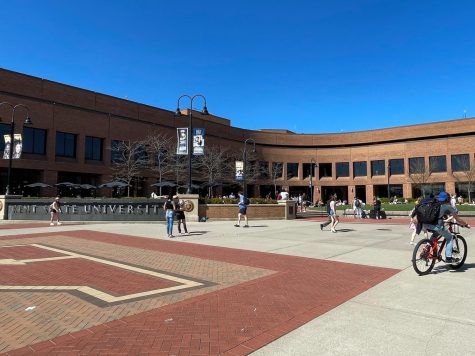Professor Awarded Grant for Down syndrome Research
February 6, 2014
Kristy Welshhans, assistant professor of biological sciences at Kent State, was awarded a grant this week from the Jérôme Lejeune Foundation, or JFL, for her projects working to improve cognition in individuals who have Down syndrome.
With this grant, Welshhans will examine how a gene, called the Down Syndrome Cell Adhesion Molecule, or DSCAM, affects connectivity in the brain. The DSCAM gene is known to cause an intellectual disability.
Down syndrome is a common birth defect, as it occurs in one out of every 700 births. As women wait to have children, it becomes more prevalent, Welshhans said.
Welshhans and her research team will use a mouse model to study the embryonic period of brain development in Down syndrome. This is particularly groundbreaking research because most Down syndrome research in the past has been focused only on treating intellectual disabilities in adults or older children, she said.
Welshhans said she has always been interested in how the nervous system develops. She became involved with this research after studying a document about Down syndrome.
“I came across a paper that had mentioned a gene that is triplicated in Down syndrome,” Welshhans said, referring to the DSCAM gene.
She said after reading this paper about the gene, she went about acquiring the JFL grant for her research.
Through their research, Welshhans and her team hope to discover what is happening during the embryonic period and possibly stop Down
syndrome before it even starts in babies.
“What I am really interested in is looking at what are the defects that actually take place when babies are still developing in the uterus, and if there is a way that we could potentially fix this disorder before birth,” Welshhans said.
Shruti Jain, a Kent State graduate student who is part of Welshhan’s research team, explained what the team hopes to find from their research.
“Ultimately, this research will help us understand the role of the DSCAM gene in improper axon guidance and abnormal brain connectivity in Down-syndrome individuals,” Jain said.
The JFL grant that Welshhans and her team received is a two-year grant. However, Welshhans said she expects the research to take much longer than that. The findings from their research could prove especially vital in the continuing search for a cure for Down syndrome.
Contact Nicholas Sewell at [email protected].























